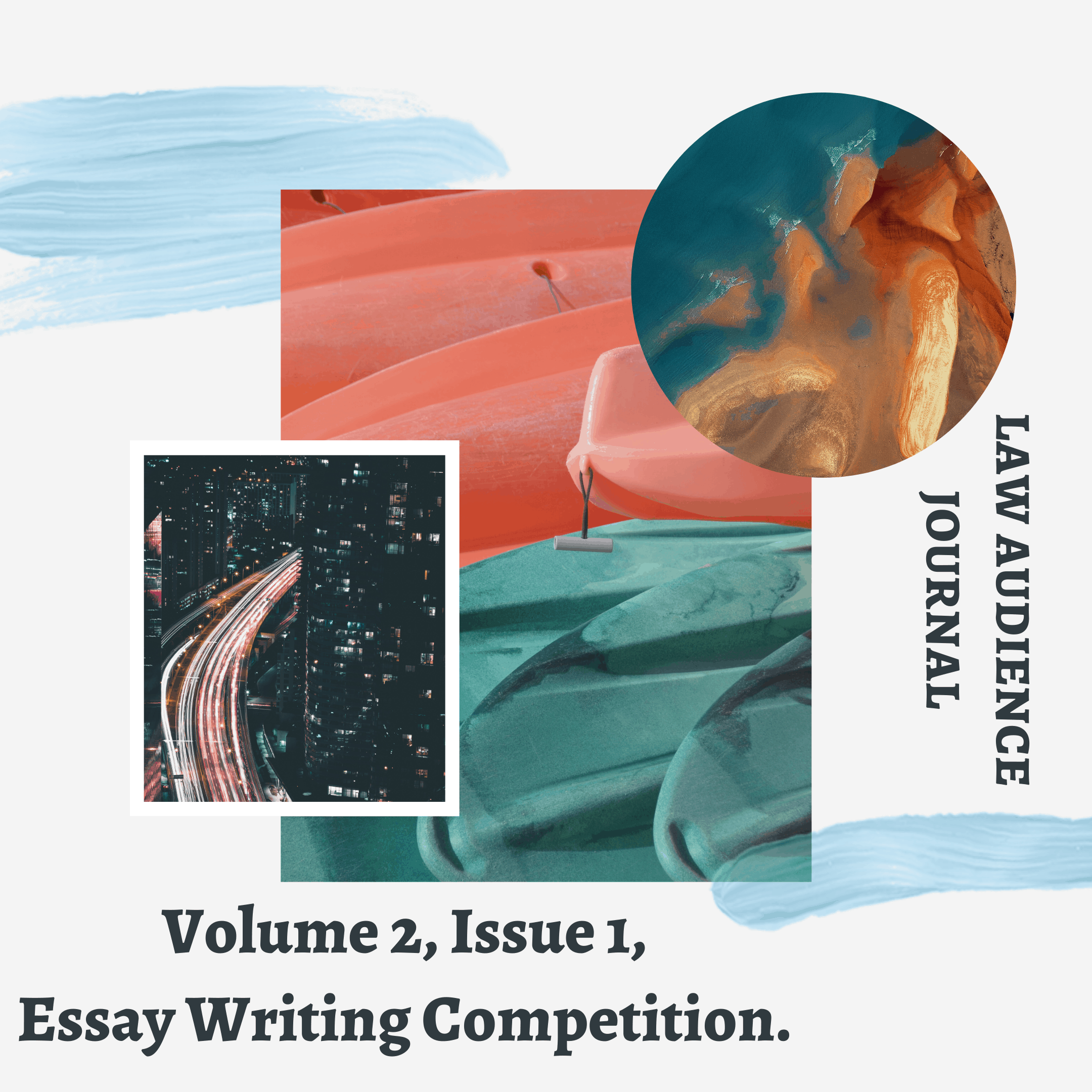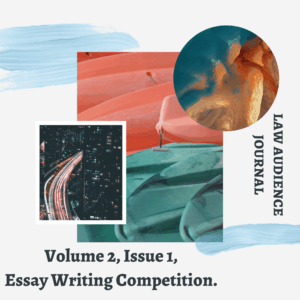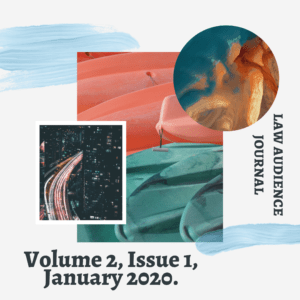Authored by: Mr. Nagesh Pal Singh (B.A.LL.B (Hons), Faculty of Law, Jamia Millia Islamia, University, New Delhi.
I. INTRODUCTION:
Solitary confinement is a zenith of brute punishment in which the prisoner is kept in complete isolation as in the state of incommunicado. In Solitary confinement the prisoner is secluded from sight and communication of other inmates, it pushes the prisoner on the verge of psychotic illness. The psychological effect of solitary confinement includes vivid hallucinations, persecutory delusions, panic, rage, paranoia, suicidal & maniacal Tendencies. Through the year’s solitary confinement has been abolished as a measure of punishment in many countries, even in India solitary confinement is given to the hardened criminals in rare cases but it still exists in the Indian penal code. In many of the countries, Solitary confinement is banned as a measure for punishment due to the gravitas of torture.
We should not forget that even prisoners are human first. Oscar wild once said that- the only difference between the saint and the sinner is that former has the past and the latter, a future. Many of the human rights activists have opposed the use of solitary confinement around the world. Solitary Confinement is the product of the theory of deterrence which is based on the premise that fear of punishment pulls the man from committing the crime. Interestingly, studies have shown that it is not the deterrence of punishment that hinders a man to commit the crime rather it’s the moral values that are inculcated in a man which do so there is a never-ending debate on which punishment theories is best for the society.
To answer that question, we have to first answer an abstruse question that “Whether all deviancies in a society are criminality or criminality is a response to the deviance of society”. Durkheim in his theory of labelling deviance said that, the crime depends on the norms of the society. This can better be explained by an example: Let us assume that there’s a utopian society which carries with it only hermit people, in this idealistic society nobody can do any crime.
So, if someone from that society commits an act of trivial nature then that act is considered as a felony because that act deemed to be inappropriate by the opposite members of the society even though that act is trivial. Durkheim says all variety of aberration is simply a challenge to the normalised repressiveness of state.
II. SOLITARY CONFINEMENT: IN THE INDIAN LAWS:
Solitary confinement is the seclusion of one prisoner from other prisoners. Nowhere in IPC Solitary confinement is specifically mentioned as a punishment for any offence rather it is defined explicitly in section 73 and its limit is given in section 74. This punishment can be given by the competent Court only in those cases in which the Court has the power to sentence the offender for rigorous punishment.[1] Thus it is important to note that it is illegal to give solitary confinement to an offender where rigorous punishment is not part of substantive punishment awarded[2]. The power to award solitary confinement conferred under section 73 of IPC applies only where a person has been convicted of an offence under the IPC and is not applicable to convictions under other laws. Solitary confinement in any scenario can’t be awarded for offences under special or local Acts. Thus, solitary confinement can be awarded, under this section, only for offences under the IPC.[3]
Solitary confinement must be a portion of the substantial sentence of rigorous imprisonment. In general, where imprisonment is not part of the substantive sentence, solitary confinement cannot be awarded.[4] It is one of the extreme measures and it should be rarely invoked in exceptional cases in which there are unparalleled atrocity and brutality.[5] A Court cannot award solitary confinement to the prisoner in lieu of a fine.[6] A Court can give imprisonment in default of payment of a fine[7] but that imprisonment does not include solitary confinement.[8]
Section 73 of IPC also states the scale of Interval of Solitary Confinement. This section limits the time of solitary confinement that it should not exceed one month if the term of imprisonment awarded is not exceeding six months, not exceed two months if the term of imprisonment awarded is between 6 months to one year and the time should not exceed three months if the term of imprisonment awarded is more than one year.[9]
The separate sentences of solitary confinement are not illegal, but a sentence of more than three months solitary confinement should not be passed on a person convicted at one trial of more than one offence.[10] In the cases where there is simultaneous convictions, the award of separate terms of solitary confinement, which in the aggregate more than three months, is legal.[11] Solitary confinement must be a portion of the substantial sentence of rigorous imprisonment, and if the substantial sentences are to be consecutive, the periods of solitary confinement cannot possibly be concurrent.[12]
The period of solitary confinement in the execution of this punishment is given under section 74 of IPC.[13] This section barres the solitary confinement of a person to exceed fourteen days at a time when the solitary imprisonment awarded is less than or equal to three months. It also barres the confinement exceeding seven days when the solitary imprisonment awarded is more than three months. This very section provides the interval which should be given to the prisoner between two periods of Solitary Confinement. This section mentions that the interval should not be less than the period of Solitary Confinement itself. The importance of this section can be understood by knowing the objective of the same. Since this punishment for a long time makes the person psychologically ill. Thus, there was a need to set a limit on solitary Confinement and prescribe the intervals between the periods. Even after the presence of this section cannot ameliorate the substandard life of the prisoner.
The ‘suboptimal standard of living’ inside the jail is not limited to the prisoners of solitary confinement only but also extended to the convicted and even the undertrial prisoners. Healthcare statistics have shown that most of the prisoners die because of tuberculosis which is a contagious disease. Many of the undertrial prisoners who are not even got the chance to prove their innocence also have to live with the convicted prisoners.
Solitary confinement is a type of punishment that is given only in rare cases. It is very clear that the awarding power of this solitary imprisonment is only in the hands of the Court. This is because the life and the health of the prisoner should not be left to the whims and caprices of jail authority. In the leading case of Sunil Batra v. Delhi Administration[14] it was said that every prisoner while undergoing solitary confinement has to be visited daily by the medical officer. This was to ensure the health of the prisoner.
III. SOLITARY CONFINEMENT AND HUMAN RIGHTS:
The effect of solitary confinement is irreversible and irredeemable. The excruciating pain given to them both physically and mentally gives rise to the question of the existence of human and their basic human rights even though there are innumerable number of International laws and conventions which advocates the basic rights of the prisoners and criticise the use of torturous punishment on prisoners but its saddening that these type of punishment still exists in the world The following are some of the Indian and international laws which are in favour of the human rights of the prisoners and try to alleviate the agony and predicament faced by them.
III.I THE PRISONERS ACT, 1894:
- Section 29: Solitary Confinement:
This section delineates about the basic amenities which should be given to the prisoners kept in solitary confinement. It explicitly mentions that the prisoner should be provided with the means to communicate with an officer of the prison any time. This section mandates that a medical officer shall visit at least once a day to the prisoners who are kept more than 24 hours. [15]
III.II The United Nations Standard Minimum Rules for the Treatment of Prisoners (the Nelson Mandela Rules), adopted by the UN General Assembly on December 17, 2015:
- Rule 37(D):
This rule defines different types of segregation of prisoners including solitary confinement. The list also contains isolation, special care units, segregation or restricted housing. These punishments may be the result of disciplinary action or for the maintenance of security and order [16]
- Rule 43:
This rule restricts the torture of prisoners in the name of disciplinary sanctions. This Section prohibits the indefinite solitary confinement, prolonged solitary confinement, placement of an inmate in the dark cell or constantly lit cell, corporal punishment, reduction of prisoner’s diet, reduction of prisoners’ drinking water and collective punishments.[17] This rule also prohibits the subsuming of prevention of family contact in the name of restrictive measures and disciplinary sanctions. Prohibition of family contact can only be restricted to the limited time frame and for maintenance of order and security[18]
- Rule 44:
For the purpose of these rules, solitary confinement shall refer to the confinement of prisoners for 22 hours or more a day without meaningful human contact. Prolonged solitary confinement shall refer to solitary confinement for a time period in excess of 15 consecutive days.[19]
- Rule 45:
This rule mandates the use of solitary confinement in exceptional cases. Solitary imprisonment should be used as a last resort. The time period of this punishment should as short as possible and always should subject to independent review to a provide check on the power of awarding of this punishment. The authority awarding these punishments should be the competent authority.[20]
The punishment of solitary imprisonment should not be awarded if the prisoner is having any mental or physical disabilities. If they are awarded to physically or mentally challenged people then it will only exacerbate the condition of the prisoner.[21]The use of solitary confinement on women and children should be prohibited[22]
IV. CONCLUSION:
Solitary confinement is one of the hardest punishments where the prisoner is kept isolated and gets ravelled in the vicious web of predicament. Solitary Confinement violates the basic principle of Human rights and throttles human dignity every day when the prisoner is inside the cell all alone. Prisoners spend intolerable and excruciating time inside the solitary cell. The psychological effect breaks the person, many of them eve die inside the solitary cell. Majority of the prisoners come from marginalised and socially downtrodden and economically weak sections which are too vulnerable and are not able to defend themselves in the court of law. The mental effect of solitary confinement is irreversible. In this punishment the prisoner sees himself die every day.
Inhumanity, the deteriorating condition of prisoner and cruelty are very common inside jail which should be taken into cognizance by the authorities. There is a dire need for change in our justice system. The pain and agony caused by the solitary confinement cannot be fathomed, they are the stigma in the form of words present in our legal books. The punishment like solitary confinement should be abolished.
[1] Indian Penal Code, 1860, section 73.
[2] Crown v Umar Singh (1869) PR No 20 ; Bunsi v Emperor (1882) PR No 9.
[3] Empress v Gurdil Singh (1889) 17 PR 1889 (Cr) ; Harnarain v Crown (1870) 20 PR 1870 (Cr) ; Crown v Munawar (1875) 4 PR 1875 (Cr) ; Empress v Mukh Ram (1879) 24 PR 1879 (Cr) ; King-Emperor v Nazir Singh.
[4] Supra, footnote 2.
[5] Kishore Singh Ravinder Dev v. State of Rajasthan, AIR 1981 SC 625.
[6] Crown v Jita (1873) PR No 26.
[7] Paras Nath vs State, AIR 1969 All 116, 1969 CrLJ 350.
[8] Crown v Jita (1873) PR No 26 ; Emperor v Jamdad (1887) PR No 53.
[9] Supra, footnote 1.
[10] Ibrahim v Queen-Empress (1897) 7 PR 1897 (Cr) ; Abdulla Jan v Emperor 2 Cr LJ 707, (1905) PR No 37.
[11] Nihala(1877) PR No 4 of 1877; Khushal(1877) PR No 13 of 1877.
[12] King-Emperor v Nga Sein Po AIR 1923 Rang 197, p 198, 1 ILR Rang 306, 2 Bur LJ 92, 25 Cr LJ 85, 76 IC 21.
[13] Indian Penal Code, 1860, section 74.
[14] Sunil Batra v. Delhi Administration, AIR 1978 SC 1675.
[15] The Prisoners Act, 1894, s.29.
[16] The United Nations Standard Minimum Rules for the Treatment of Prisoners, Rule 37(d).
[17] The United Nations Standard Minimum Rules for the Treatment of Prisoners, Rule 43(1).
[18] The United Nations Standard Minimum Rules for the Treatment of Prisoners, Rule 43(3)
[19] The United Nations Standard Minimum Rules for the Treatment of Prisoners, Rule 45(1).
[20] The United Nations Standard Minimum Rules for the Treatment of Prisoners, Rule 45(1).
[21] The United Nations Standard Minimum Rules for the Treatment of Prisoners, Rule 45(2).
[22] Ibid.


